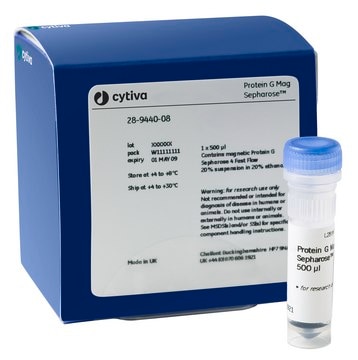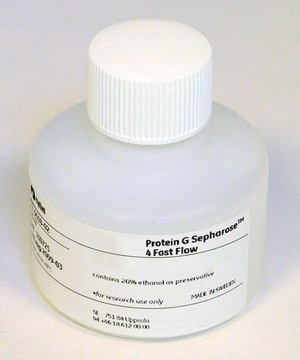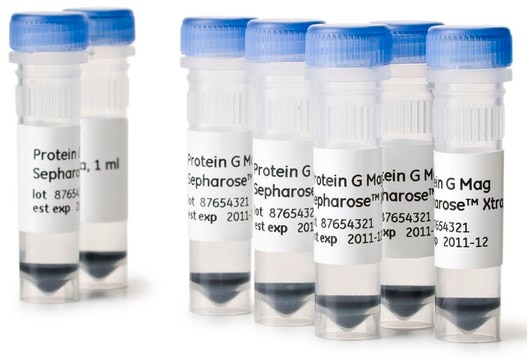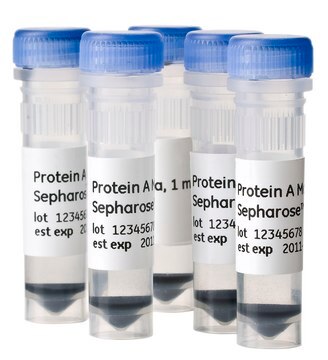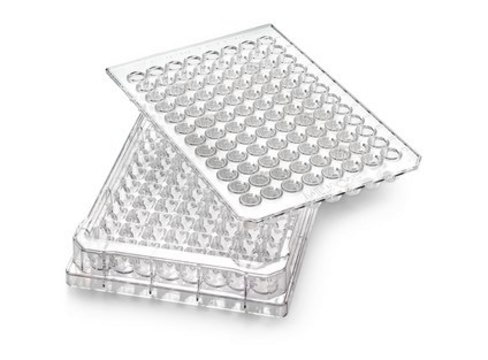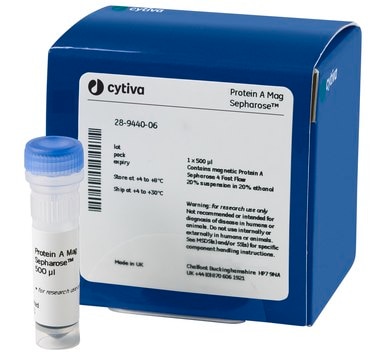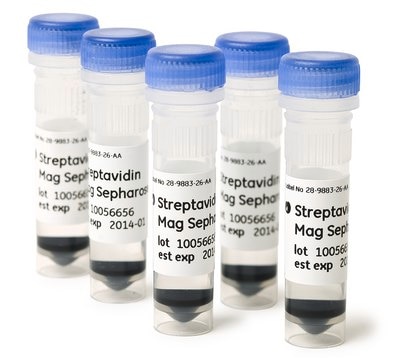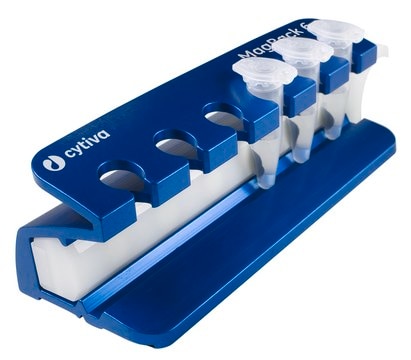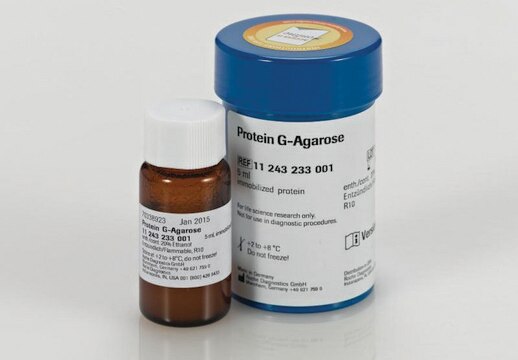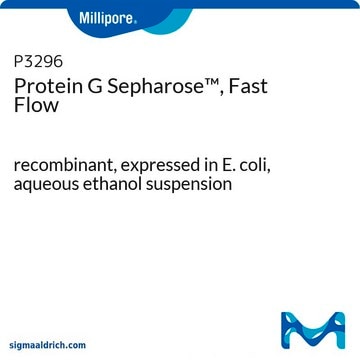GE28-9670-70
Protein G Mag Sepharose™ Xtra
Cytiva 28-9670-70, pack of 5 × 1 mL
Synonym(s):
Protein G magnetic beads
About This Item
Recommended Products
ligand
protein G
packaging
pack of 5 × 1 mL
manufacturer/tradename
Cytiva 28-9670-70
storage condition
(20% Ethanol, 10% medium slurry)
parameter
Room temperature temp. range
matrix
paramagnetic, spherical, highly cross-linked agarose particles
capacity
27 mg binding capacity(human IgG/ml gel)
storage temp.
2-8°C
Related Categories
General description
Application
Together with MagRack 6, a separation tool for handling the beads in microcentrifuge tubes, up to six samples can be processed in parallel. You can easily screen a larger number of samples in parallel with high throughput on a robotic device. Protein G Mag Sepharose™ Xtra is available in a 2 × 1 mL pack for 20 purifications and in a 5 × 1 mL pack for 50 purifications. The product is based on Sepharose™ medium with magnetite incorporated and the ligand is native Protein G. Protein G has high affinity for the Fc region of IgG antibody from a variety of species.
Protein G Mag Sepharose™ is another product in the Mag Sepharose™ platform which is designed for the rapid capture and enrichment of Protein samples from cell lysates and biological fluids using immunoprecipitation technology. Protein G Mag Sepharose™ is made with an optimized ligand for immunoprecipitation.
Features and Benefits
- Efficient, high capacity small-scale purification and screening of antibodies from various species; 27 μg human IgG/μL magnetic beads
- High purity and yield
- Robust parallel screening of antibodies with high reproducibility
- Simple capture of antibodies from small or large sample volumes (low-microliter to high-milliliter scale)
- Visible and dense Sepharose™ based magnetic beads give increased simplicity for handling
- Non-adherent beads eliminate smearing effects and aggregate formation. Can be used without detergents.
Storage and Stability
Analysis Note
Legal Information
signalword
Warning
hcodes
Certificates of Analysis (COA)
Search for Certificates of Analysis (COA) by entering the products Lot/Batch Number. Lot and Batch Numbers can be found on a product’s label following the words ‘Lot’ or ‘Batch’.
Already Own This Product?
Find documentation for the products that you have recently purchased in the Document Library.
Customers Also Viewed
Articles
This page shows various purification options for Protein A Sepharose chromatography media and describes typical binding and elution conditions for Protein A Sepharose chromatography media.
This page describes immunoprecipitation (immunoaffinity or pull-down techniques).
Desalting at laboratory scale is a well-proven, simple, and fast method that will rapidly remove low molecular weight contaminants at the same time as transferring the sample into the desired buffer in a single step.
Our team of scientists has experience in all areas of research including Life Science, Material Science, Chemical Synthesis, Chromatography, Analytical and many others.
Contact Technical Service